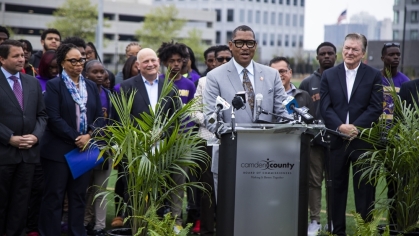Rutgers–Camden Hosts Third Annual Fall Sustainability Conference: Building Today with Tomorrow in Mind

Listen Now
The conference focused on policies that encourage responsible development and support healthy communities
Kimberly Rain Miner, a climate scientist and systems engineer who currently serves as Applied Sciences Program Manager at NASA's Jet Propulsion Laboratory, opened the third annual Rutgers–Camden Sustainability Conference by acknowledging the continuing threat of climate change but insisting that everyone in the audience can be a part of the solution.
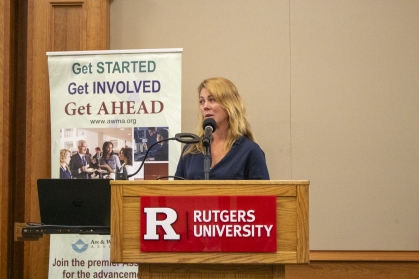
“We are all part of the larger ecosystem, and we can have an impact,” Miner said. “I encourage people to take small actions to increase biodiversity, whether it means planting a garden, providing food for migrating wildlife, or choosing to buy locally grown food and produce. The small actions you take make a difference and are important."
Miner recently published “Considering Climate Change,” a practical guide blending her scientific expertise with accessible insights for the public. Drawing on her fieldwork in some of the planet’s most extreme environments, Miner explains the science behind climate change and outlines practical opportunities readers can take at every level to make a difference.
“I believe in the principles behind a representative democracy, and so it is up to us to decide the agenda and address this crisis,” said Miner. “There is cause to believe we can make a change as individuals, and this will have an impact at a global level.”
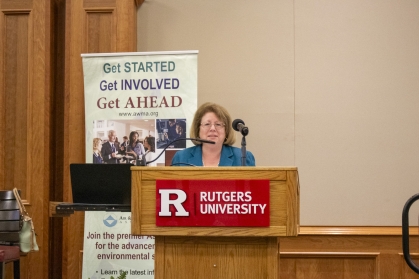
Miner’s keynote set the tone for a lineup of sessions that highlighted the conference theme, “Building Today with Tomorrow in Mind.” Presentations addressed issues ranging from food insecurity to the environmental impacts of artificial intelligence, emphasizing the role of collaboration and innovation in confronting immediate challenges while advancing long-term social and ecological goals.
Positive collaboration was highlighted during the panel on environmental justice. Rebecca Bratspies, an award-winning author, a professor at CUNY School of Law, and a member of the New York City Environmental Justice Advisory Panel, lauded the passage of New Jersey’s landmark Environmental Justice Law as a significant step forward, ensuring that community perspectives are considered in decisions about the placement of industrial and commercial sites.
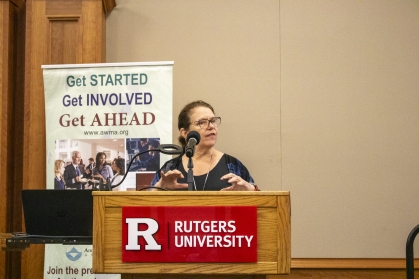
“With the passage of this law, the first of its kind in the nation, New Jersey took a real and significant step toward addressing environmental justice by giving everyone a seat at the table,” Bratspies said. “Overburdened communities who have traditionally felt the disproportionate environmental and public health effects of pollution are now legally entitled to fair treatment and meaningful involvement with respect to the development, implementation, and enforcement of environmental laws, regulations, and policies that will affect them.”
Signed into law in 2020, requires the state’s Department of Environmental Protection (DEP) to evaluate the cumulative environmental and public health impacts of certain facilities on overburdened communities and gives the DEP the authority to deny permits for new facilities or impose additional conditions on existing ones to prevent further disproportionate pollution.
“This law is an important first step, but we need to turn law into action,” said Bratspies. “We can build a better world. We can build a fairer world. We can build a world where everyone breathes clean air and lives in healthy communities. If we believe that change is possible, it is.”
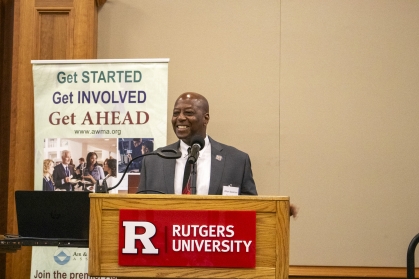
Creating opportunities among all the constituencies and communities impacted by climate change to drive change was a primary reason the conference is held each year, according to Dean Monica Adya of the Rutgers School of Business–Camden.
“As a business school, we have a responsibility to foster research and shape the conversation around sustainable business practices," Adya said. "These are not issues that can be resolved in silos, and events like this, where we come together to discuss the challenges we all face as a society, are essential."
